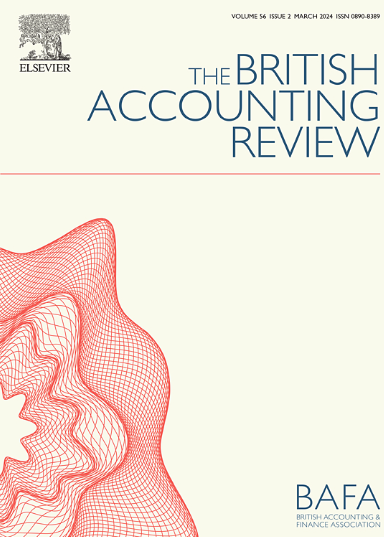High-speed railways, audit partner changes across audit offices and audit quality: Evidence from China
IF 9.4
3区 管理学
Q1 BUSINESS, FINANCE
引用次数: 0
Abstract
The development of high-speed railways (HSRs) has significant regional economic and social implications. We study a micro externality of such development, namely the impact of HSRs on audit firms' human resource allocation and audit quality. Specifically, we investigate the relationship between the availability of HSRs and audit partner changes across audit offices in China which involves a simultaneous change in audit partner and audit office to reallocate human resources. We find that the advent of HSRs between clients and audit offices increases the likelihood of audit partner changes across audit offices especially for predecessor audit offices with severe human resource constraints due partly to the mandatory auditor rotation requirement. Such audit partner changes across audit offices most likely are reciprocal over time, occur within the optimal HSR transportation interval and can significantly improve audit quality in terms of reducing excessive financing reporting discretions, misstatements and regulatory sanctions, but exert no effect on audit fees. Our study has implications for audit firms’ human resource management in light of infrastructure improvements and for audit policy makers to evaluate the standards for audit partner rotations.
高铁、审计合伙人的变更和审计质量:来自中国的证据
高速铁路的发展具有重要的区域经济和社会影响。我们研究了这种发展的微观外部性,即高铁对审计事务所人力资源配置和审计质量的影响。具体而言,我们调查了中国审计机构的审计合伙人变更与高可靠性报告的可用性之间的关系,这涉及到审计合伙人和审计机构的同时变更,以重新分配人力资源。我们发现,客户和审计机构之间hsr的出现增加了审计机构之间审计合伙人变更的可能性,特别是对于那些由于强制审计人员轮岗要求而存在严重人力资源限制的前任审计机构。这种跨审计办公室的审计合作伙伴变更很可能随着时间的推移是相互的,发生在最佳高铁运输间隔内,并且可以在减少过度融资报告自由裁量权、错报和监管制裁方面显著提高审计质量,但对审计费用没有影响。我们的研究对审计事务所的人力资源管理在基础设施的改善和审计政策制定者评估审计合伙人轮换的标准有启示。
本文章由计算机程序翻译,如有差异,请以英文原文为准。
求助全文
约1分钟内获得全文
求助全文
来源期刊

British Accounting Review
BUSINESS, FINANCE-
CiteScore
8.60
自引率
3.90%
发文量
39
审稿时长
76 days
期刊介绍:
The British Accounting Review*is pleased to publish original scholarly papers across the whole spectrum of accounting and finance. The journal is eclectic and pluralistic and contributions are welcomed across a wide range of research methodologies (e.g. analytical, archival, experimental, survey and qualitative case methods) and topics (e.g. financial accounting, management accounting, finance and financial management, auditing, public sector accounting, social and environmental accounting; accounting education and accounting history), evidence from UK and non-UK sources are equally acceptable.
 求助内容:
求助内容: 应助结果提醒方式:
应助结果提醒方式:


